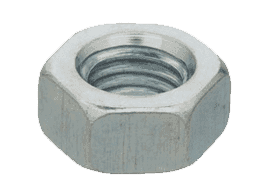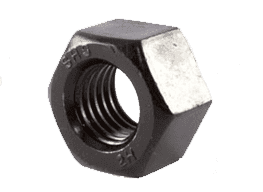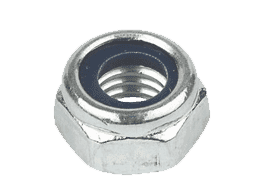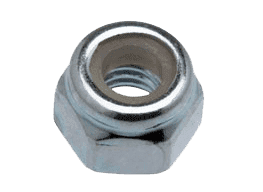Hex Nuts
As a well known Nuts Manufacturers here are popular available nuts types we supply.
Nuts Manufacturers India
Nuts Manufacturers India
minimum order : 450 items
Customization as per requiments
| Size | M3 – M56 | 3/6″ to 2″ | Custom Sizes |
| Type | Nut |
| Standard | Din, Iso, Jis, Gb, Is, Bs, Astm |
| Length | 3 mm to 200 mm |
| Material | Stainless Steel, Monel, Inconel, Incoloy, Hastelloy, Nickel, Silicon Bronze, Phosphor Bronze |
Ananka Group is well-known Nuts Manufacturers in India.Nuts are essential fastening components designed to mate with bolts, screws, or threaded rods, creating a secure, removable connection in a wide range of applications. Typically hexagonal in shape for easy wrench grip, nuts come in various types—including hex nuts, lock nuts, wing nuts, and cap nuts—each serving specific purposes. Made from durable materials like stainless steel, carbon steel, or brass, they offer strength, stability, and resistance to wear. Some nuts have special features, such as nylon inserts in lock nuts, to prevent loosening under vibration. Available in multiple sizes and finishes, nuts are versatile for both industrial and household uses, providing reliable fastening in everything from machinery to furniture.

As a well known Nuts Manufacturers here are popular available nuts types we supply.

As a well known Nuts Manufacturers here are popular available nuts types we supply.

As a well known Nuts Manufacturers here are popular available nuts types we supply.

As a well known Nuts Manufacturers here are popular available nuts types we supply.
What is the purpose of a lock nut, and how does it prevent loosening?
A lock nut is designed to prevent loosening under vibrations and dynamic loads, providing a more secure fastening than standard nuts. It typically includes features like a nylon insert (in a nylon lock nut) or a deformed thread (in prevailing torque lock nuts) that creates additional friction, ensuring the nut stays in place. This makes lock nuts ideal for machinery, automotive, and construction applications where movement and vibration are common.
How does the material of a nut affect its performance in different environments?
The material of a nut significantly impacts its durability, strength, and corrosion resistance. For example, stainless steel nuts are highly resistant to rust and are ideal for outdoor and marine environments, while carbon steel nuts offer high strength for heavy-duty applications but may require coatings to prevent rust. Brass and nylon nuts are often used in environments needing non-magnetic or non-corrosive properties, with each material choice tailored to meet specific environmental and mechanical demands.
Why are nuts typically hexagonal in shape?
Nuts are typically hexagonal in shape to allow for easy installation with standard wrenches and tools, as the six-sided design provides a good balance between grip and accessibility in tight spaces. The hex shape allows for easier torque application, enabling the nut to be tightened or loosened with fewer turns compared to other shapes. This design also maximizes contact surface area with the tool, reducing the risk of slipping and ensuring a secure fit during fastening.
Get Quote Instantly
India
Ahmadnagar
Ahmedabad
Jodhpur
Mumbai
Gujrat

Sugar

Oil And Gas Industries

Paper Mill

Power Plant

Bridge And Building

Aerospace Industries

Automobile Industry

Electrical Industry

Defense Industry

Construction & Fabrications

Ring Man Units
Get Quote Instantly